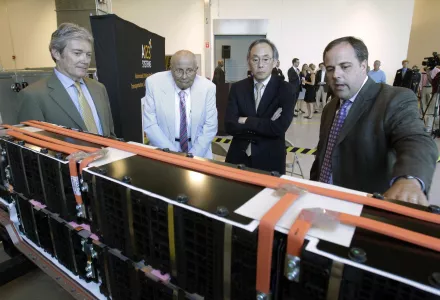
Abstract
Innovation to reduce the cost of clean technologies has large environmental and societal benefits. Governments can play an important role in helping cleantech startups innovate and overcome risks involved in technology development. Here we examine the impact of the US Advanced Research Projects Agency-Energy (ARPA-E) on two outcomes for startup companies: innovation (measured by patenting activity) and business success (measured by venture capital funding raised, survival, and acquisition or initial public offering). We compare 25 startups funded by ARPA-E in 2010 to rejected ARPA-E applicants, startups funded by a related government programme and other comparable cleantech startups. We find that ARPA-E awardees have a strong innovation advantage over all the comparison groups. However, while we find that ARPA-E awardees performed better than rejected applicants in terms of post-award business success, we do not detect significant differences compared to other cleantech startups. These findings suggest that ARPA-E was not able to fully address the 'valley of death' for cleantech startups within 10–15 yr after founding.
Goldstein, Anna, Claudia Doblinger, Erin Baker and Laura Diaz Anadon. "Patenting and Business Outcomes for Cleantech Startups Funded by the Advanced Research Projects Agency-Energy." Nature Energy, (2020) .
The full text of this publication is available via Nature Energy.









